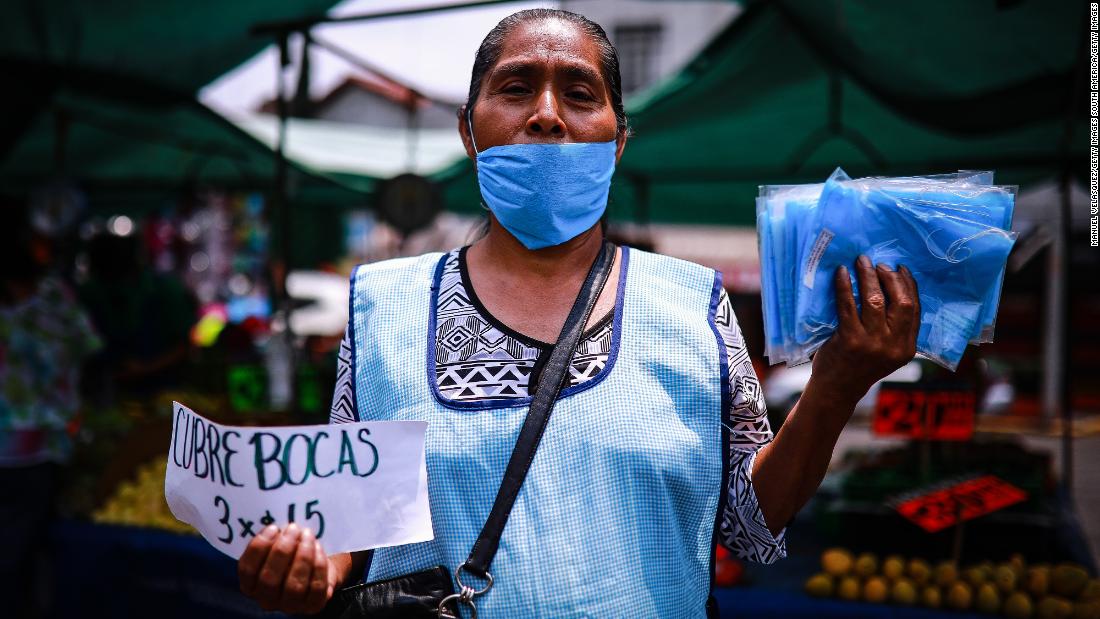
To examine what may lie ahead, we relied on our decades of senior government experience in risk forecasting to develop three potential scenarios of how the pandemic will play out -- all of which present disturbing problems of inequality that will likely dog us for years to come. Scenarios are not predictions, but they are useful tools for helping us confront different possibilities and hopefully mitigating the potential consequences.
In the first scenario, only a small global minority are effectively vaccinated. This lucky group -- we'll call them the vaccine class -- also enjoys the luxury of receiving annual booster shots that protect them from new variants of the coronavirus. Meanwhile, vaccine manufacturing capacity remains constrained for at least one or two years and global distribution, particularly in the developing world, is slow.
Inequities have already emerged in the vaccine rollout, both domestically and globally. While the US has one of the highest rates of vaccination in the world, minorities in the country are receiving shots at disproportionately lower rates. When it comes to the global population, it could take two or more years for people in lower-income countries to be vaccinated.
While the vaccine passports that the European Union, China and United Kingdom governments are considering could give the travel industry a boost, they could also deepen the divide between the "haves and have-nots" if they become mandatory for international or domestic travel. In this scenario, the protection of the rest of the world's population against the coronavirus will remain a big challenge. To avoid this, a special effort must be made to vaccinate disadvantaged groups in both advanced and developing countries.
In the second scenario -- a multi-speed world -- many countries cannot tamp down the pandemic as the rate of infection exceeds the rate of vaccination. These countries become mired in crisis, unable to rejuvenate their economies and societies in light of recurring outbreaks and intermittent lockdowns. Meanwhile, other countries that have quashed infections through mass vaccinations are successful in triggering a spirit of revitalization that energizes their national trajectories.
As a result of Covid-19, about 119 to 124 million people were pushed into extreme poverty in 2020, the first rise in global poverty since 1998, according to United Nations estimates. The unequal vaccine distribution around the world could exacerbate issues of poverty and instability that could go on to fuel terrorism and organized crime. The West ignores the plight of these countries at its own peril, and China and Russia could expand their influence in the developing world through vaccine diplomacy.
In the third scenario -- revenge of the variants -- most people, even those who have received the current vaccines, are reinfected with new variants that are significantly more contagious and deadly. Countries play "whack a mole" for several years and the world grapples with a permanent pandemic. With the UK, South Africa and Brazil variants already posing challenges, we need to prepare ourselves for this world. The Food and Drug Administration is already planning to fast-track booster shots. But ensuring mass access to these shots and a smoother and faster rollout will be difficult.
Depending on the severity and speed of infections and new variants, the economic recovery projected for most Western countries by the end of 2021 or early 2022 would be delayed in this scenario. The hospitality and travel sectors, which have already been devastated, could see a much slower recovery. Countries ravaged by new variants would likely be cut off from the world in the form of border restrictions.
About 30% of Americans already say they don't want to be vaccinated, according to a PBS NewsHour/NPR/Marist poll. If annual booster shots are necessary to protect people from variants, it's possible vaccine fatigue will begin to set in. In the meantime, the health community should ramp up existing efforts to develop a universal vaccine against all coronaviruses.
If there is one lesson we can take away from these scenarios, it's that Covid-19 will have a lasting impact on the world. The pandemic has exacerbated the racial, ethnic and class inequalities that have long existed in the US. Globally, there is the serious risk of a permanent and widening gap between advanced economies and the developing world.
The influence of the West could be eclipsed by China and Russia in key regions if it doesn't show greater determination to fight the pandemic worldwide. And unless we reach global herd immunity, variants could cause new and more dramatic surges at home.
Covid-19 is a security threat that knows no borders and the US is the only country with the capacity and influence to lead the world in eradicating this historic pandemic. Of all the vaccine doses that have been administered so far, the vast majority have gone to the world's richest countries. This needs to change -- fast.
We are encouraged that the Biden Administration has taken initial steps to close the global vaccine gap by agreeing to share doses with Mexico and Canada and pledging $2 billion to the COVAX program, even if this still leaves developing countries at the back of the queue. The recently announced initiative among the Quad countries -- US, Australia, Japan and India -- to distribute vaccines across developing countries in the Indo-Pacific could also begin closing the gap between richer and poorer countries if implemented soon.
"Exit" - Google News
April 17, 2021 at 12:52AM
https://ift.tt/2Q9ZhQP
There will be no graceful exit from the Covid-19 pandemic - CNN
"Exit" - Google News
https://ift.tt/2zNkU0N
https://ift.tt/2YrnuUx
Bagikan Berita Ini














0 Response to "There will be no graceful exit from the Covid-19 pandemic - CNN"
Post a Comment